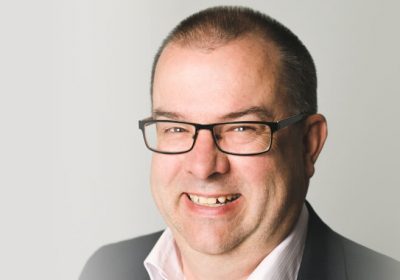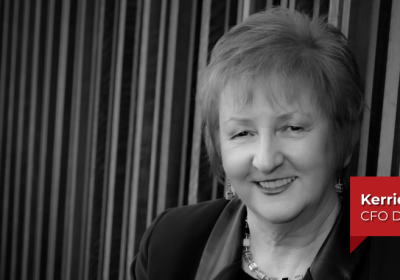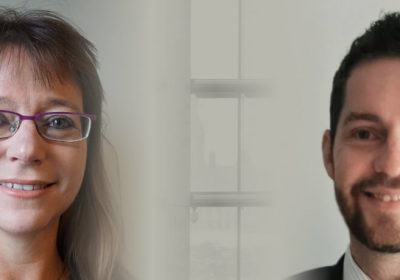
- Author: Jessica Mudditt
- Posted: July 10, 2023
How to Scale & Sell a $100m Business > InstantScripts CFO, Rick Bourke
Rick Bourke is the CFO and executive director of InstantScripts, which is one of Australia’s leading telehealth businesses. In June, the online medical prescriptions company signed an agreement for Wesfarmers to purchase the business for $135 million. Bourke explains how he positioned the company to maximise its appeal to blue-chip buyers.
Rick Bourke had an unorthodox start to his financial services career. He secured his first job as a corporate finance graduate in Melbourne just before the Global Financial Crisis of 2008 put his employer into receivership.
“Finding another investment banking job was near impossible with just nine months of experience to my name,” says Bourke. “I was competing against far more seasoned professionals.”
Two of his mentors at the former company had moved to private equity firms in India and Perth, and they offered Bourke project work on transactions.
“I was effectively working for myself, less than a year after finishing university,” he says.
Within a year, Bourke had secured a role as corporate finance analyst at Atlas Partners, where he discovered his passion for financial modeling.
At BPM Financial Modelling, he spent two years producing financial models for household name companies that included BHP, Fosters and SEEK.
“I’ve always enjoyed analysing businesses,” he says. “It is really satisfying to break down a business into its core components and then put it all back together in a way that produces a valuation or forecast.”
In 2016, Bourke took on a role in financial planning and analysis at iSelect, a price comparator service on utilities, insurance and finance products.
“At the time, iSelect’s growth was exploding and there was talk of a potential IPO,” he says.
Bourke caught the attention of the company’s founder and chairperson, Damien Waller, who became a longstanding mentor to Bourke. Today they sit on boards together and have co-invested in around ten companies.
“Damien Waller has one of the greatest entrepreneurial minds I’ve ever come across. Being able to work with someone of his calibre has been a defining part of my career,” says Bourke.
After seven years with iSelect, Bourke set up his own consultancy and continued working with Waller, who had exited iSelect. Bourke helped start-ups to raise capital, set strategy, hire the right people, and grow more quickly.
“I have a passion for working with fast-growing companies, particularly digital companies and tech companies. I’ve got an insatiable desire to learn, and founders are some of the best people to learn from,” he says. “They are different cats from the rest of us.”
Right time, right product
In 2021, Bourke decided to take his talents inhouse when he became the CFO and executive director of InstantScripts. He had been advising its co-founder, Asher Frelich, since the company’s launch. InstantScripts supplies online prescriptions that are faster and more affordable than visiting a GP.
The offering was already resonating with consumers before the exponential growth in telehealth occurred during the Covid-19 pandemic.
“If you are purely looking at the numbers and financials, you’re probably not adding as much value as you should be,” he says. “You need to be able to add value across multiple areas.”
Rick Bourke, CFO | InstantScripts
“I had spent five years coming in and out of businesses as a consultant, but this one was special,” he says. “I could see where this business could go, and I wanted to be a part of it.”
Today, InstantScripts has served a million patients in Australia and 75% of its business is to repeat customers. The medications must have been prescribed previously to be eligible for approval by the company’s 120 doctors, who are employed as contractors. InstantScripts has a high calibre medical clinical governance committee that is chaired by the former chief medical officer of Western Australia, Dr Michael Levitt AM.
Snapped up by Wesfarmers
With a liquidity event on the horizon, Bourke focused on positioning the business to attract buyers. This involved working closely with the co-founders and COO Richard Skimin to keep a close eye on numbers, set the right strategy, hire the right people, and create robust clinical governance and cybersecurity measures.
“In discussions with investors, we identified their areas of concern and doubled down on the things that attracted them to the business, such as convenience and the lack of market penetration,” he says.
“We also made sure that we’ve got the best clinical governance in the industry, and we are highly secure from a cybersecurity point of view.”
After receiving some inbound interest in June 2022, a decision was made to identify a strategic buyer.
“Given that InstantScripts is in telehealth, which is an upcoming segment of the market, we knew that bigger players were going to start looking at it, such as health funds or pharmacy groups.”
In June, the wholly-owned subsidiary of Wesfarmers Limited, Australian Pharmaceutical Industries Pty Ltd (API), purchased InstantScripts for $135 million. InstantScripts became part of the Wesfarmers Health division.
Finding the right people
Bourke has played an instrumental role in recruiting key positions at the fast-growing company, which has seen an average of 8% month-on-month growth for four years.
Bourke prefers to hire people with whom he has worked with before, or who come recommended.
“That way they are known quantities, and I know what their strengths and weaknesses are.”
“In a startup environment, where things are moving so quickly and changing fast, I have a preference for people with broad skillsets,” he adds. “Being able to throw a problem at someone and knowing they will figure it out is invaluable.”
Similarly, Bourke believes that being an all-rounder is a prerequisite for succeeding as a scale-up CFO.
“If you are purely looking at the numbers and financials, you’re probably not adding as much value as you should be,” he says. “You need to be able to add value across multiple areas.”
Bourke has been deeply involved with marketing. Last year, the company invested almost $10 million in above the line advertising on television. This had a short-term impact on cash flow, however to Bourke it was about identifying an opportunity within the market and being resolute in achieving it.
“You don’t just put ads on TV for a month and suddenly you’re a massive business. It needs to have a sustained approach,” he says.
The company returned to profitability this year and a recent round of brand metrics showed that InstantScripts is the number one prompted and unprompted brand and telehealth in Australia.
“The term InstantScripts has become synonymous with getting a script online,” says Bourke.
Always optimising
As the CFO, Bourke uses key metrics to continuously track business performance. He extracts data from the likes of Google Analytics – much of it is automated and takes only a couple of minutes to produce in Excel.
“I’m looking at it constantly. What did we do well yesterday, and how can we do more of it? Or if something hasn’t gone well, is it broken and we need to fix it or do we stop doing it entirely?”
One of his key metrics is known as ‘CAC to LTV’: the customer acquisition cost versus the lifetime value.
He regards it as one of the most powerful metrics available because it speaks to the scalability of a business. This is of course very important to investors.
“If you’re acquiring a customer at the right cost in proportion to lifetime value, it demonstrates that you probably have a business model that’s going to reach profitability,” he explains.
“You’re not going to get 5% jumps all the time. But when you can get constant little upticks, that’s when you can get sustainable week-on-week growth, and the compounding of those little upticks is huge.”
Bourke says that it was Wallerand other top founders who taught him to be “obsessively” focused on optimizing.
“Founders never stop thinking about a business,” he says. “They’re never satisfied, no matter how well things are going. They are never just sitting back and thinking ‘wow’ about what they have achieved. They are constantly looking for new opportunities.”








